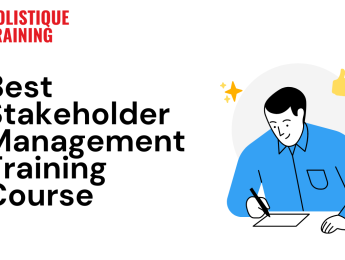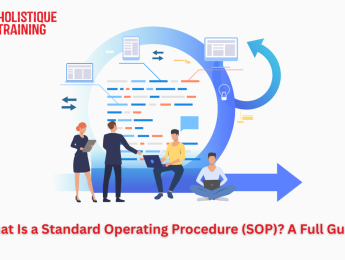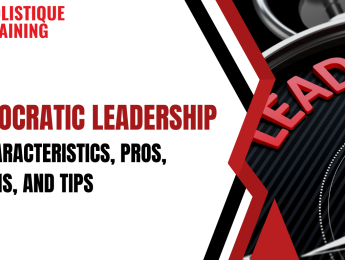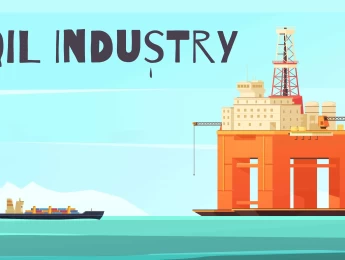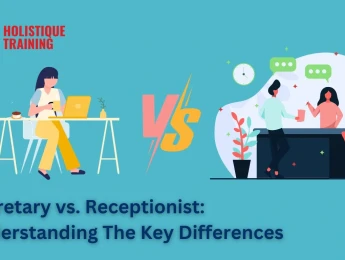- Table of Contents
- Stakeholder Management Essentials
- Advanced Stakeholder Management
- Stakeholder Engagement Strategies
- Corporate Stakeholder Management
- Government Stakeholder Engagement
- Community Stakeholder Relations
- Stakeholder Communication and Influence
- Stakeholder Engagement & Management by Holistique Training
Introduction
Learning stakeholder management is crucial for navigating the intricate web of relationships that influence the success of projects and organizations. Effective stakeholder management entails identifying key stakeholders, understanding their interests and expectations, and strategically engaging with them to achieve shared objectives. This discipline not only involves communication and negotiation skills but also requires a deep understanding of stakeholder dynamics and the ability to mitigate conflicts and leverage opportunities effectively. By mastering stakeholder management, professionals can foster trust, build sustainable partnerships, and drive positive outcomes that align with organizational goals, ensuring resilience and success in dynamic environments.
Stakeholder Management Essentials
- Summary: This course covers strategies and techniques for effectively managing stakeholders in projects and organizations.
- Duration: 2 days
- Language: English
- Level: Beginner to Intermediate
What does the Stakeholder Management Essentials Course teach you? This course teaches participants how to identify stakeholders, analyze their interests and influence, develop engagement strategies, and manage stakeholder communication effectively.
Who should take the Stakeholder Management Essentials course? Project managers, team leaders, and anyone involved in managing relationships with stakeholders in projects or organizations.
Why should someone take the Stakeholder Management Essentials course? It provides essential skills and techniques to navigate stakeholder dynamics, enhance project success, and foster positive relationships crucial for organizational success.
Advanced Stakeholder Management
- Summary: This advanced course delves deeper into stakeholder engagement models, conflict resolution strategies, and stakeholder analysis techniques.
- Duration: 3 days
- Language: English
- Level: Intermediate to Advanced
What does the Advanced Stakeholder Management Course teach you? Participants learn advanced stakeholder mapping, negotiation tactics, crisis management with stakeholders, and strategies for sustainable stakeholder relationships.
Who should take the Advanced Stakeholder Management course? Experienced project managers, senior executives, and professionals seeking to refine their stakeholder management skills for complex project environments.
Why should someone take the Advanced Stakeholder Management course? It equips participants with sophisticated strategies to handle diverse stakeholder interests, mitigate conflicts effectively, and drive stakeholder engagement strategies aligned with organizational goals.
Stakeholder Engagement Strategies
- Summary: Focuses on developing proactive engagement strategies to maximize stakeholder support and minimize resistance.
- Duration: 1 day
- Language: English
- Level: Intermediate
What does the Stakeholder Engagement Strategies Course teach you? This course teaches techniques for stakeholder needs assessment, creating engagement plans, leveraging feedback mechanisms, and adapting strategies based on stakeholder responses.
Who should take the Stakeholder Engagement Strategies course? Professionals involved in change management, public relations, or project management roles requiring effective stakeholder engagement.
Why should someone take the Stakeholder Engagement Strategies course? It provides actionable insights to enhance stakeholder relationships, foster collaboration, and drive organizational change initiatives successfully.
Corporate Stakeholder Management
- Summary: Explores stakeholder management within the corporate context, emphasizing shareholder value, regulatory compliance, and ethical considerations.
- Duration: 2 days
- Language: English
- Level: Intermediate to Advanced
What does the Corporate Stakeholder Management Course teach you? Participants learn strategies for balancing stakeholder interests, corporate governance frameworks, investor relations, and strategies for addressing stakeholder expectations.
Who should take the Corporate Stakeholder Management course? Corporate executives, governance professionals, and legal advisors involved in managing corporate relationships with diverse stakeholders.
Why should someone take the Corporate Stakeholder Management course? It equips participants with insights into navigating complex stakeholder landscapes, enhancing corporate reputation, and ensuring sustainable organizational growth.
Government Stakeholder Engagement
- Summary: Focuses on stakeholder engagement strategies tailored for government agencies and public sector organizations.
- Duration: 3 days
- Language: English
- Level: Intermediate to Advanced
What does the Government Stakeholder Engagement Course teach you? This course covers stakeholder analysis techniques specific to government contexts, public consultation processes, transparency initiatives, and stakeholder-driven policy formulation.
Who should take the Government Stakeholder Engagement course? Government officials, policy analysts, and public administrators responsible for engaging diverse stakeholders in policy development and implementation.
Why should someone take the Government Stakeholder Engagement course? It provides strategies to enhance public trust, manage stakeholder expectations, and facilitate effective governance through inclusive stakeholder engagement practices.
Community Stakeholder Relations
- Summary: Focuses on managing stakeholder relations within community development projects, emphasizing social responsibility and sustainability.
- Duration: 2 days
- Language: English
- Level: Beginner to Intermediate
What does the Community Stakeholder Relations Course teach you? Participants learn community engagement strategies, conflict resolution techniques, cultural sensitivity, and strategies for fostering partnerships with community stakeholders.
Who should take the Community Stakeholder Relations course? Project managers, community outreach coordinators, and CSR (Corporate Social Responsibility) professionals involved in community-driven initiatives.
Why should someone take the Community Stakeholder Relations course? It equips participants with skills to build sustainable relationships with diverse community stakeholders, drive social impact initiatives, and enhance organizational reputation.
Stakeholder Communication and Influence
- Summary: Focuses on effective communication strategies and influence tactics to manage stakeholder perceptions and support organizational objectives.
- Duration: 1 day
- Language: English
- Level: Intermediate
What does the Stakeholder Communication and Influence Course teach you? This course covers persuasive communication techniques, stakeholder mapping for influence, managing stakeholder expectations, and crisis communication strategies.
Who should take the Stakeholder Communication and Influence course? Communications professionals, public relations specialists, and project leaders seeking to enhance their ability to influence stakeholder perceptions and actions.
Why should someone take the Stakeholder Communication and Influence course? It provides tools and strategies to effectively communicate organizational messages, gain stakeholder buy-in, and navigate challenging stakeholder interactions successfully.
Stakeholder Engagement & Management by Holistique Training
- Summary: These courses teach skills to build lasting stakeholder relationships, including effective communication, SMART negotiation, managing change, ensuring profitability through innovation, and resolving conflicts and workplace politics.
- Duration: 5 day
- Language: English
- Level: Intermediate to Advanced
What does the Stakeholder Engagement & Management Course teach you? This course focuses on developing skills crucial for building enduring stakeholder relationships. Participants learn effective communication strategies, SMART negotiation techniques, methods for managing organizational change, fostering innovation to ensure profitability, and strategies for resolving conflicts and navigating workplace politics.
Who should take the Stakeholder Engagement & Management course? The course is designed for intermediate to advanced-level professionals involved in project management, corporate governance, public relations, or organizational leadership roles. It's ideal for those seeking to enhance their ability to manage stakeholder relationships strategically and effectively.
Why should someone take the Stakeholder Engagement & Management course? Taking this course enables professionals to acquire advanced skills in stakeholder engagement and management. It equips them with the tools to strengthen communication with stakeholders, negotiate effectively, navigate organizational changes, drive innovation for profitability, and handle conflicts and workplace dynamics adeptly, thereby enhancing organizational success and leadership effectiveness.
Table: Summary of Best Stakeholder Management Training Course
Course Name | Provider | Summary |
Stakeholder Management Essentials | Global Institute of Stakeholder Management | Covers strategies and techniques for managing stakeholders effectively in projects and organizations. |
Advanced Stakeholder Management | International Institute of Stakeholder Relations | Advanced course on stakeholder engagement models, conflict resolution, and stakeholder analysis techniques. |
Stakeholder Engagement Strategies | Stakeholder Management Academy | Focuses on developing proactive engagement strategies to maximize stakeholder support and minimize resistance. |
Corporate Stakeholder Management | Strategic Leadership Institute | Explores stakeholder management within corporate contexts, emphasizing shareholder value, regulatory compliance, and ethical considerations. |
Government Stakeholder Engagement | Project Management Institute | Focuses on stakeholder engagement strategies tailored for government agencies and public sector organizations. |
Community Stakeholder Relations | Communication Excellence Institute | Focuses on managing stakeholder relations within community development projects, emphasizing social responsibility and sustainability. |
Stakeholder Communication and Influence | Conflict Management Solutions | Focuses on effective communication strategies and influence tactics to manage stakeholder perceptions and support organizational objectives. |
Stakeholder Engagement & Management | Holistique Training | Teaches skills for building lasting stakeholder relationships, including communication, negotiation, change management, profitability, conflict resolution. |


